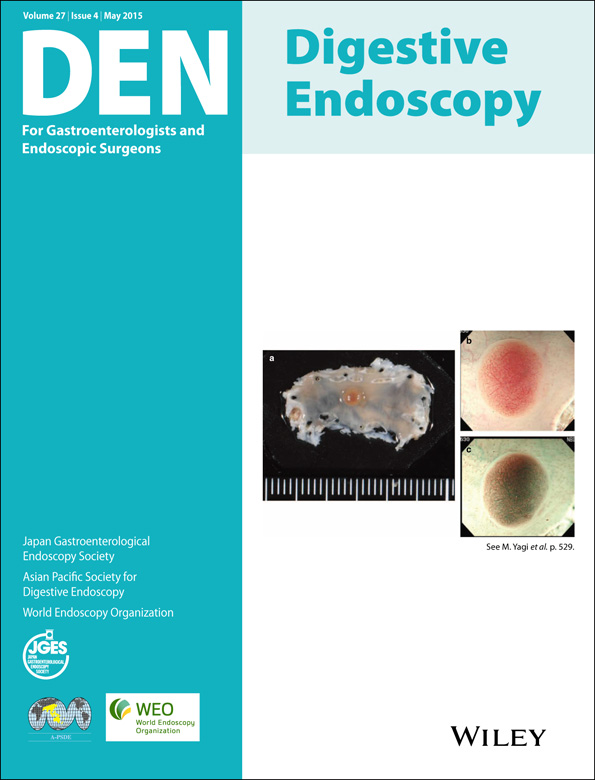Endoscopic treatment of pediatric post-transplant biliary complications is safe and effective
Abstract
Background and Aim
Biliary complications (BC) after liver transplantation (LT) are associated with significant morbidity and mortality. Incidence of BC after pediatric LT is more than 10%. In adults, treatment by endoscopic retrograde cholangiopancreaticography (ERCP) is successful. As data in pediatric patients are limited, endoscopic treatment of BC in a pediatric cohort in a German transplant center was analyzed.
Methods
LT recipients <18 years of age who were endoscopically treated for BC at University Hospital Essen were retrospectively analyzed. Characteristics of LT, endoscopic treatment measures, clinical and endoscopic presentation of BC, and outcomes after endoscopic treatment were evaluated.
Results
Seventeen patients (median age 12 years) with clinical signs of BC were treated endoscopically using ERCP. Eleven patients had received a full-size liver, and six a left-sided living-donor transplant graft. In 12 patients, the bile ducts were accessible via Vater's papilla and five patients had a bilioenteric anastomosis. Biliary sphincterotomy was done in 13 patients. Eleven patients presented with stricture of the biliary anastomosis (AST), either isolated (nine) or in combination with biliary cast syndrome (BCS) or biliary leakage (one patient each). Ischemia-type biliary lesions (ITBL) were found in two patients. Five patients suffered from BCS, either as isolated pathology (two) or in combination with AST, bile leak or ITBL. In one patient, biliary access via the major papilla was not obtainable.
Conclusions
BC in pediatric LT were treated safely and successfully in pediatric patients when the biliary tract was accessible. The most common complications were AST, BCS and ITBL.




